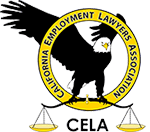For most, health, family and work are life’s top priorities. Unfortunately, sometimes our health and family obligations–like taking time off to recover from an illness, care for a sick family member or bond with a newborn–conflict with our work responsibilities and can even put our jobs at risk. This is why the Family Medical Leave Act (FMLA) and the California Family Rights Act (CFRA) were enacted. These laws are designed to help employees balance their work and family responsibilities by entitling them to unpaid leave for certain family and medical reasons.
Regrettably though, many employers ignore medical and family leave laws. If you find yourself in this situation, the FMLA Attorneys at Pimentel Law can protect your rights in California.
Family and medical leave is a protected right under both federal and California law. The two laws are very similar and have considerable overlap. Below is a side-by-side comparison of the protections provided by each law.
FEDERAL v. STATE FAMILY & MEDICAL LEAVE OVERVIEW
Am I Entitled to Paid Family and Medical Leave?
Although the FMLA and CFRA entitle qualified employees to a protected family or medical leave of absence, that leave is unfortunately unpaid. However, an employee may be able to receive compensation while on FMLA/CFRA leave by:
- Using accrued vacation, sick leave or other paid leave
- Using an employer-paid family leave policy or disability leave plan
- Qualifying for wage replacement under the State Disability Insurance (SDI) or California Unemployment Insurance Code’s Paid Family Leave (PFL) program
Challenges You May Experience with Employers
Many employers will deny family and medical leave even when an employee qualifies for it. Other employers find ways to penalize employees who take leave, like reassigning employees to less desirable positions upon their return to work. If you encounter this type of behavior after exercising or attempting to exercise your family and medical leave rights, contact our FMLA attorneys to help.
Other unacceptable actions that employers may take against you for taking leave include:
- Discontinuing health insurance
- Pressuring you to return from your leave prematurely
- Disciplining you for taking your leave
- Failing to make you aware of your family and medical leave rights
- Unreasonably denying that you meet eligibility requirements for taking family and medical leave
Some employers will even terminate employees who take or attempt to take a family or medical leave. If this happens, you should immediately seek the counsel of an FMLA attorney to determine your next steps. Our experienced FMLA attorneys in Los Angeles will help you recover financial compensation for your losses.
Seek the Help of an Employment Attorney Today
If you have suffered an adverse employment action at work as a result of taking or attempting to take a family or medical leave, contact Pimentel Law for the leading FMLA attorneys in Los Angeles.
At Pimentel Law, we can help you receive the leave rights you’re entitled to, help you reclaim the higher salary you earned before your leave or even reinstate you to your prior position.
Contact us today to learn more about how an FMLA attorney can help you protect your family and medical leave rights in California.
Schedule a free case evaluation, contact us today.







